Knee Pain Physio Adelaide
Monday
Tuesday-Thursday
Friday
Saturday
Sunday
We're here to help you maintain healthy, strong knees
The knee joint is a complex hinge joint and arguably the most stressed joint in the entire body. Knee pain can be caused by dysfunction of the hip, foot & ankle, patella (knee cap) or injury to surrounding muscles, ligaments and meniscus.
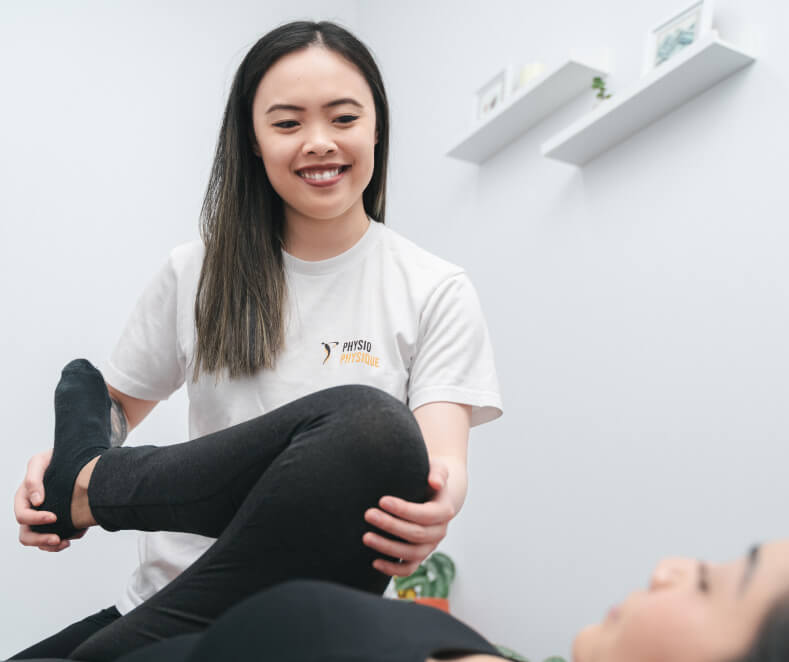
We specialise in treating
these common knee pain conditions:

Knee Arthritis
The knee is the most common joint affected by osteoarthritis (OA). OA typically develops slowly and tends to affect people over the age of 50. Rheumatoid arthritis (RA) is also common in the knees and tends to affect both knees at the same time.
Conservative treatment such as physiotherapy is recommended before more invasive treatment options are explored.
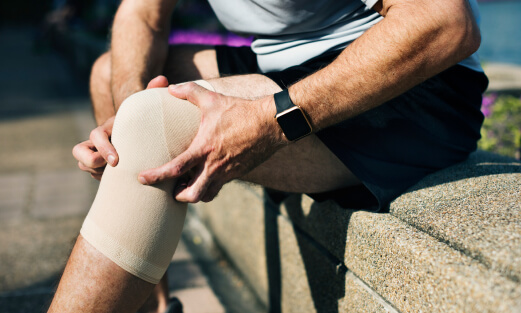
Tendonitis & Tendinopathy
Tendonitis is where a tendon becomes inflamed as a result of overuse injuries. An example of tendonitis is patella tendonitis (jumper’s knee).
Tendinopathy is typically more chronic in nature and does not present with acute inflammation. An example is hamstring tendinopathy.
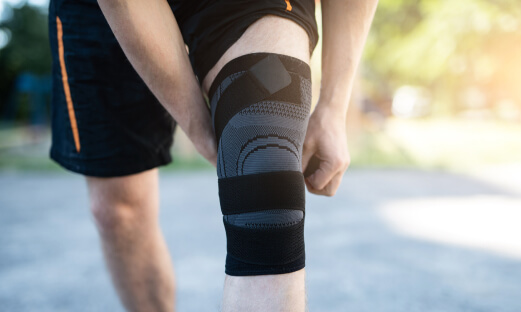
Ligament Injuries
Ligament injuries of the knee are very common in sports such as soccer, basketball, netball and football.
The anterior cruciate ligament (ACL) and medial collateral ligament (MCL) are the most common ligaments injured. Less commonly injured is the posterior cruciate ligament (PCL) and lateral collateral ligament (LCL).
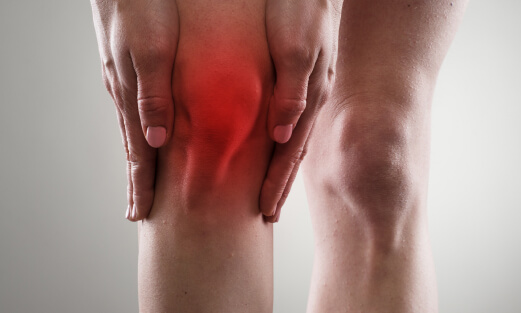
Patellofemoral Pain Syndrome
PFPS is a term used to describe pain in and around the knee cap. The pain is usually caused by the surrounding soft tissues such as joint capsule, tendons, ligaments, cartilage and fat pad impingement. Sometimes, anterior knee pain can also be caused by patellar maltracking.
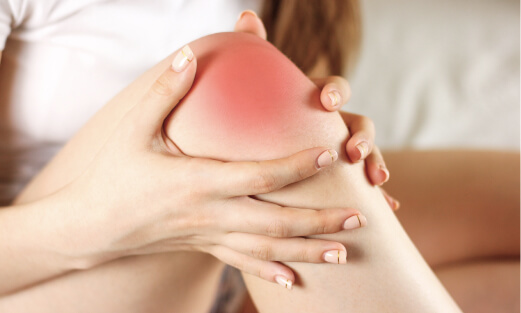
Meniscus Tears
Meniscus tears can occur from trauma or degenerative changes. These tears are diagnosed by the way they look e.g. bucket handle, radial or flap tears.
Not all meniscus tears require surgical treatment and many can recover with physiotherapy intervention.
At Physio Physique, we set ourselves apart by:
Using a holistic assessment and treatment approach
We use a comprehensive assessment and treatment approach that combines highly effective manual therapy and personalised exercises specific to your needs.
Designing our services for busy schedules
Our Adelaide clinic is open 7 days a week with extended hours and flexible appointment times suitable for busy people.
Empowering you to reclaim control of your health
We support and encourage clients to self-maintain their health through education as the key to preventing future issues. We teach you to heal yourself.
Helping build sustainable habits for lasting results
We believe that positive and long-lasting results are achieved by introducing realistic goals that you can stick to.
Offering specialised care for NDIS participants
We understand that NDIS participants have a range of specific needs and deliver services that ensure their goals can be met.
Providing a welcoming environment and service
Our staff create a professional yet relaxing atmosphere filled with flourishing plants and welcome clients with coffee or tea.
Your journey to stronger knees starts here
Get in touch with our friendly team or book online today.
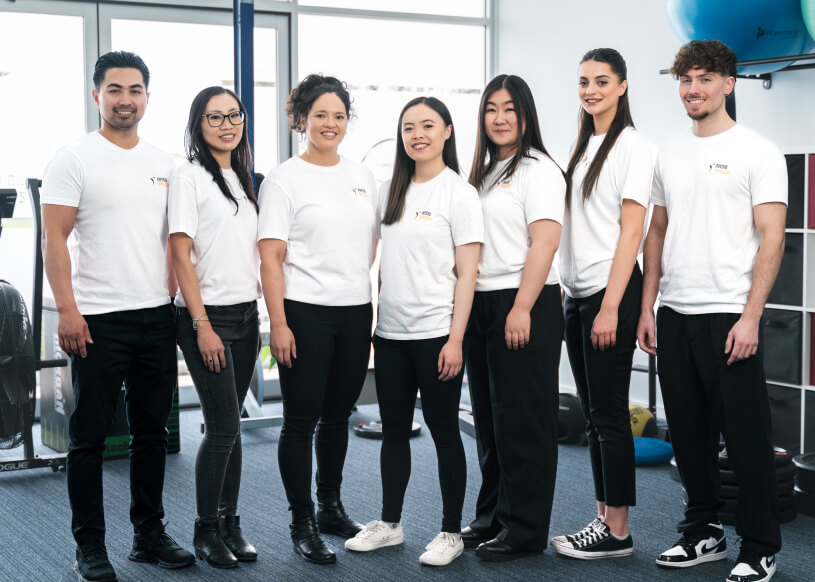
Our team delivers personalised care for pain-free knees
Our physiotherapists will identify all contributing factors to your knee pain and design an effective management plan with you. We understand how different lifestyle factors and daily habits impact on your knee health and overall recovery. Whether you want to return to sport, return to work or just want to enjoy life without pain, we can help.
Build resilient knees in our on-site gym
Two of the most important things for knee health are joint flexibility and strong muscles surrounding the knee. Let us guide your rehab and teach you how to perform exercises correctly in our functional gym. Research has shown that exercise is by far the most effective, drug-free treatment for conditions like osteoarthritis.
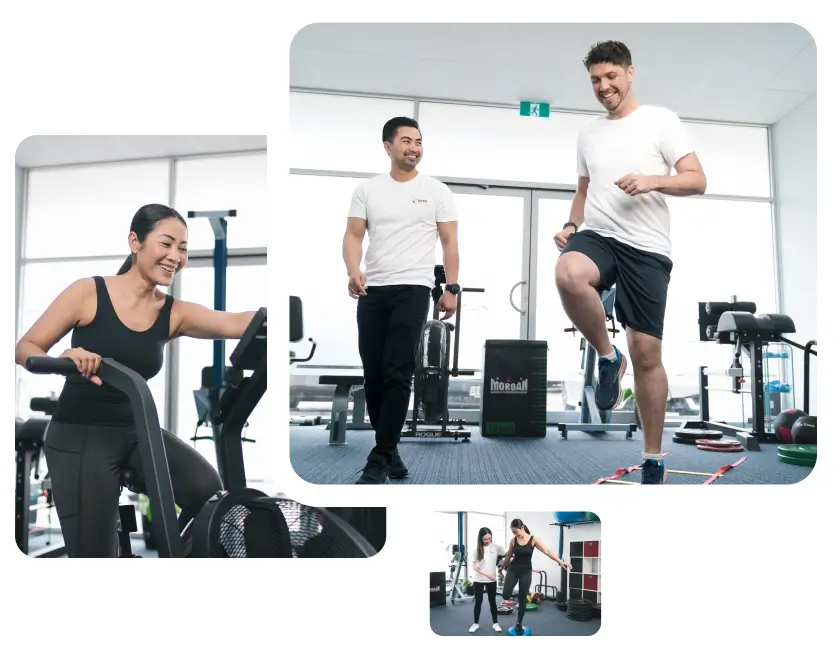
Frequently Asked Questions
Researchers have found that non-runners experience a significantly higher prevalence of knee pain compared to runners. We always encourage exercise where possible, however, it may be necessary to reduce or cease certain activities during times of pain and then rebuild your tolerance to activities like running.
Just because you have degenerative changes that show up on your X-rays or scans, it does not mean that you automatically need surgery.
Many lifestyle factors (e.g. excessive body weight) can negatively contribute greatly to your knee pain and function. Working with your physio to identify all the contributing factors then addressing them can significantly improve the health of your knee.
The short answer is, probably not.
One of the reasons you may be experiencing knee pain is poor lower limb biomechanics and muscle imbalances. It is important to address the poor biomechanics to promote efficient movement patterns and reduce unnecessary load on your joints, meniscus, muscles and tendons.
You will likely need some manual therapy to reduce pain quickly then undertake specific exercises to address the biomechanical dysfunctions.
Yes, excessive body can definitely be contributing to your knee pain. Your knees can be exposed to approximately 4x your body weight in force during certain activities. For example, if you weigh 100kg then your knees can be subjected to 400kg in force!